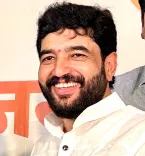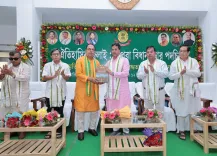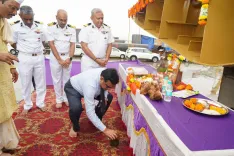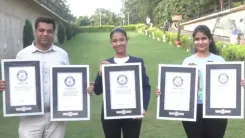Did India's cotton textile exports surpass $35.6 billion in the last three years?
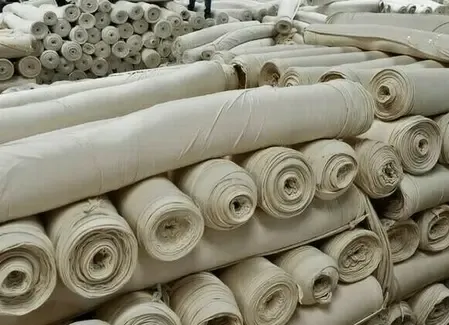
Synopsis
Key Takeaways
- India's cotton textile exports surpassed $35.6 billion in the last three years.
- The 'Mission for Cotton Productivity' focuses on enhancing cotton quality and productivity.
- Strategic interventions include developing climate-smart and high-yielding cotton varieties.
- The project by ICAR-CICR has a budget of Rs 6,032.35 lakhs.
- NIFT collaborates with global institutions to strengthen textile education.
New Delhi, July 22 (NationPress) India's overall cotton textile exports, comprising cotton yarn, cotton fabrics, made-ups, other textile yarn, fabric made-ups, and raw cotton, exceeded $35.642 billion in the past three years, as reported by Union Minister of Textiles Giriraj Singh during a Parliament session.
The minister further highlighted that to enhance cotton productivity and quality, foster innovation, and fortify the entire textile value chain in accordance with the Vision 2030, a five-year initiative titled 'Mission for Cotton Productivity' was announced by the Finance Minister in the Budget for 2025-26.
The Department of Agricultural Research and Education (DARE) will lead the implementation of this Mission, collaborating with the Ministry of Textiles. The initiative aims to elevate cotton production through strategic measures, including research and extension efforts across all cotton-growing regions.
Additionally, the Mission seeks to concentrate on developing climate-smart, pest-resistant, and high-yielding cotton varieties, including Extra Long Staple (ELS) cotton, utilizing advanced breeding and biotechnology techniques.
A dedicated project named 'Targeting technologies to agro-ecological zones-large scale demonstration of best practices to enhance cotton productivity' has been initiated by the ICAR- Central Institute for Cotton Research (CICR), Nagpur, in eight key cotton-producing states. The total budget for this Special Project is Rs 6,032.35 lakhs, the minister added.
The 'Mission for Cotton Productivity' is designed to furnish farmers with cutting-edge scientific and technological support, facilitating greater productivity, enhanced fibre quality, and improved resilience against climate-related and pest challenges. In alignment with the Government's comprehensive 5F vision—Farm to Fibre to Factory to Fashion to Foreign—the Mission is anticipated to elevate cotton farmers’ earnings, ensure a reliable supply of high-quality cotton, and rejuvenate India's traditional textile sector, thereby boosting its global competitiveness, he stated.
To further augment textile exports, the Ministry has also backed Export Promotion Councils in organizing a global mega textile event, Bharat TEX 2025, aimed at showcasing the strengths of the Indian textiles value chain, emphasizing the latest innovations in the textile and fashion industry, and positioning India as the top choice for sourcing and investment in the textile domain, the minister mentioned in response to another question in the Lok Sabha.
The NIFT (National Institute of Fashion Technology) has established formal partnerships with over 22 institutions across more than 14 countries, including the UK, France, Australia, Japan, the United States, New Zealand, and Finland. These collaborations, governed through MoUs, support student and faculty exchanges, joint research efforts, dual-degree and twinning programs, collaborative curriculum development, and global academic immersion, the minister elaborated.
Significant collaborations include partnerships with institutions such as FIT (New York), UAL (UK), ENSAIT (France), and Bunka (Japan). Over the past five years, around 100+ NIFT students and numerous faculty members have participated in international exchange programs, with reciprocal engagement from global partners, he further added.
"These international partnerships bolster India's standing in the global textile and fashion arena by fostering academic excellence, encouraging innovation, and facilitating knowledge transfer. They expose students and faculty to worldwide design sensibilities, technological advancements, and emerging trends. By aligning curricula with international standards, these collaborations prepare Indian graduates with the skills and insights essential for effective competition in global markets, enhancing India's reputation as a center for creative and technical expertise in textiles and fashion," the minister concluded.


